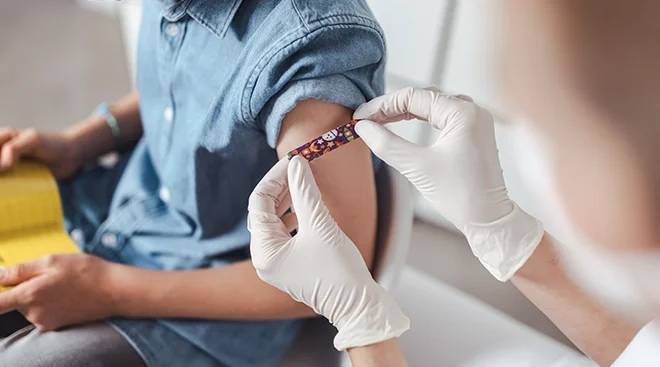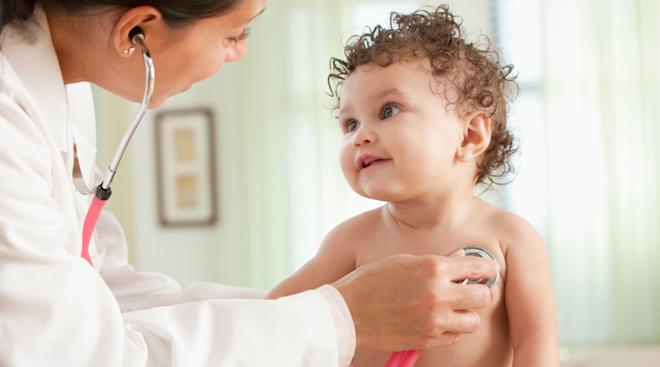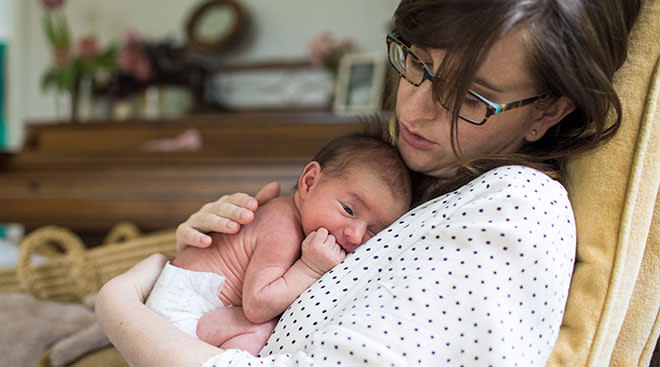The COVID-19 Vaccine for Adults: Answers to Your Top Questions
The first COVID-19 vaccines, for ages 16 and older, started to be rolled out in January 2021. The vaccine has been out for over a year, and since then the FDA has granted approval for the vaccine in kids 5 to 25 and, more recently, ages 6 months and up. However, many parents may still have questions and concerns about the vaccines for ages 16 and up and their safety. Here we answer the 10 most common questions we have been asked by parents about the vaccine for ages 16 and up.
The FDA states that two mRNA COVID-19 vaccines are currently available from Moderna and Pfizer-BioNTech. Moderna’s vaccine has emergency use authorization for people aged 6 months through 17 years, and full authorization for adults aged 18 and older. Pfizer-BioNTech’s vaccine has emergency use authorization for people aged 6 months through 4 years and full authorized use for people aged 5 years and above.
The Moderna and Pfizer-BioNTech vaccines use mRNA, a technology that was developed 30 years ago and has been studied extensively. They are not based on a live virus, but rather mRNA that teaches our cells how to make a protein (or piece of a protein) that then triggers our immune response to produce antibodies to protect us if we get infected by COVID-19. To be more specific, the COVID-19 mRNA vaccines provide instructions for our cells to make a piece of a viral protein called a “spike protein,” which is found on the surface of the virus that causes COVID-19. Since it does not encode for the entire virus, the vaccine cannot cause COVID-19 infection.
The mRNA itself is destroyed by our bodies in a day or two. Our cells display the protein piece on its surface, our immune system recognizes the protein as foreign, makes antibodies against it, and therefore learns how to protect us in the future if we are exposed to COVID-19. The mRNA does not affect our DNA in any way and our cells get rid of the mRNA soon after it uses its instructions to make the protein.
Pfizer’s and Moderna’s mRNA vaccines are approximately 95% effective at preventing SARS-CoV-2 infection after 2 doses.
While how long immunity lasts after receiving two doses of the vaccine is still currently being studied, experts believe immunity may start to fade around 6 months. They recommend getting a booster shot 6 months after your last vaccine.
If you are experiencing any symptoms after the vaccine, it is likely a sign that your immune system (and the vaccine!) are working. To date, there were no major adverse side effects in people who received mRNA vaccines detected in clinical trials. After the vaccine, people have reported a sore arm, tiredness, fever, chills, headache, and muscle aches. Side effects may be more pronounced after the second vaccine dose.
People who have had a severe allergic reaction to any component of the Pfizer-BioNTech or Moderna vaccine should not receive it. The CDC reports that if a person has had a severe allergic reaction, such as anaphylaxis, to another vaccine, that should be a precaution, but not a contraindication to the COVID-19 vaccine. All people receiving the vaccine should be observed for 15 minutes after the vaccine, but if you have a history of anaphylaxis to anything, you should be observed for 30 minutes following the vaccine.
Yes! The vaccine is recommended even if you have had COVID.
According to the FDA, the Moderna COVID-19 vaccine has emergency use authorization for kids aged 6 months through 17. The Pfizer-BioNTech COVID-19 Vaccine has been authorized for kids aged 5 and older and has emergency use authorization for kids aged 6 months through 4 years old.
Pregnancy is not a contraindication to receiving the vaccine since these vaccines don’t have ingredients that are known to be unsafe for pregnant women and their babies nor are they live vaccines that are avoided while being pregnant. Pregnant women who get COVID can have preterm labor and are more likely to have severe illness than women who are not pregnant, especially if they have other medical issues. A growing body of research has found no increased risk of miscarriage due to the vaccine—in fact, it’s found the vaccine to be safe and effective. The research has also found getting the vaccine during pregnancy can pass protective antibodies to baby. The American College of Obstetricians and Gynecologists (ACOG) and CDC, therefore, as of August 2021, recommend the COVID-19 vaccines for all pregnant people who meet criteria for vaccination. The decision to be vaccinated is very personal and a pregnant woman’s medical conditions as well as risk of getting COVID should be weighed in on the decision.
Like pregnancy, breastfeeding is not a contraindication to receiving the vaccine. Based on what is known on the science of how the vaccine works, it is not thought to be harmful to an infant breastfeeding. The CDC, American College of Obstetricians and Gynecologists, and Society for Maternal Fetal Medicine all state they believe that the Pfizer and Moderna vaccines don’t pose safety issues for breastfeeding. More research is needed, but, according to the CDC, early reports have shown that breastfeeding people who receive the COVID-19 vaccine have antibodies in their breastmilk that could protect their babies.
Meet Dina DiMaggio, MD, and Anthony F. Porto, MD, MPH, official spokespeople for the American Academy of Pediatrics and the co-authors of The Pediatrician’s Guide to Feeding Babies and Toddlers. They write about the latest AAP guidelines, studies and seasonal issues affecting babies and toddlers. Follow them on Instagram @pediatriciansguide.
Please note: The Bump and the materials and information it contains are not intended to, and do not constitute, medical or other health advice or diagnosis and should not be used as such. You should always consult with a qualified physician or health professional about your specific circumstances.
Navigate forward to interact with the calendar and select a date. Press the question mark key to get the keyboard shortcuts for changing dates.




















































